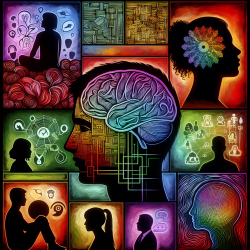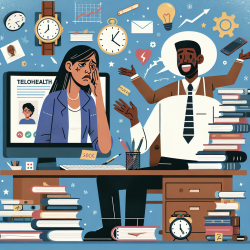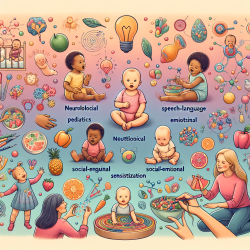Understanding TBI in Teens: Insights for Better Outcomes
Traumatic Brain Injury (TBI) is a significant concern for adolescents, with far-reaching implications for their psychological and physical health. A recent study titled "The Moderating Effects of Sex and Age on the Association between Traumatic Brain Injury and Harmful Psychological Correlates among Adolescents" sheds light on how sex and age can influence the outcomes of TBI in teens. This research offers valuable insights for practitioners working with adolescents, particularly in tailoring interventions to improve outcomes.
Key Findings from the Research
The study analyzed data from a population-based survey involving 9,288 Ontario students in grades 7 through 12. The findings highlight several critical points:
- Prevalence of TBI: The study found that 23.1% of males and 17.1% of females reported a lifetime TBI, indicating a higher prevalence among males.
- Psychological and Behavioral Correlates: Adolescents with a history of TBI reported higher rates of cigarette smoking, alcohol use, cannabis use, bullying, and poor academic performance.
- Moderating Effects of Sex and Age: The research revealed that sex and age jointly moderated the relationship between TBI and outcomes such as daily smoking, alcohol use, and physical injuries. Late adolescent males with TBI showed elevated daily smoking and injuries, while females exhibited increased alcohol use.
Implications for Practitioners
Understanding these moderating effects is crucial for practitioners aiming to improve outcomes for adolescents with TBI. Here are some practical applications of the research findings:
- Tailored Interventions: Practitioners should consider sex and age when designing interventions for adolescents with TBI. For instance, addressing smoking cessation in late adolescent males and alcohol use in females could be more effective.
- Comprehensive Assessments: A thorough assessment of psychological and behavioral correlates in adolescents with TBI can help identify specific areas that require intervention.
- Prevention and Education: Educating adolescents, parents, and educators about the risks and signs of TBI can help in early identification and prevention of further injuries.
Encouraging Further Research
While this study provides valuable insights, it also highlights the need for further research. Longitudinal studies could help establish causal relationships between TBI and its psychological correlates. Additionally, exploring the neurobiological mechanisms underlying these associations could lead to more targeted interventions.
For practitioners interested in delving deeper into this topic, I highly recommend reading the original research paper. It offers a comprehensive analysis of the data and provides a solid foundation for understanding the complex interactions between TBI, sex, and age in adolescents.
To read the original research paper, please follow this link: The Moderating Effects of Sex and Age on the Association between Traumatic Brain Injury and Harmful Psychological Correlates among Adolescents.










